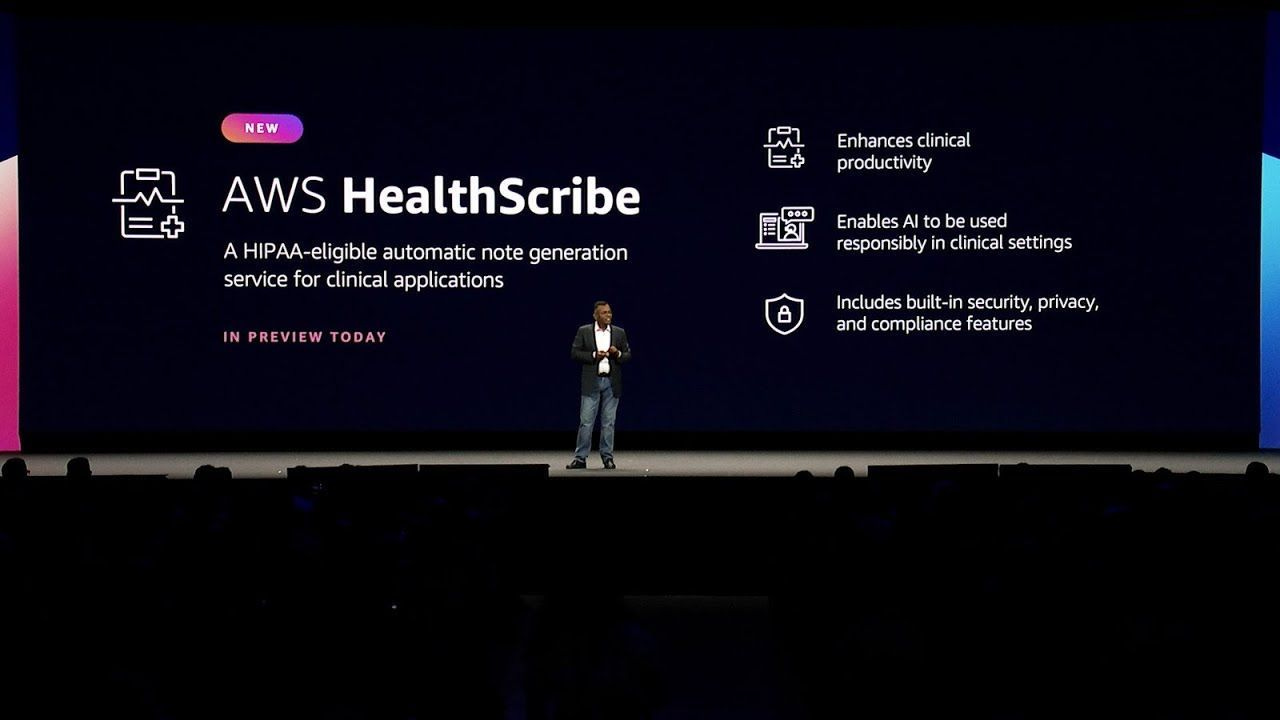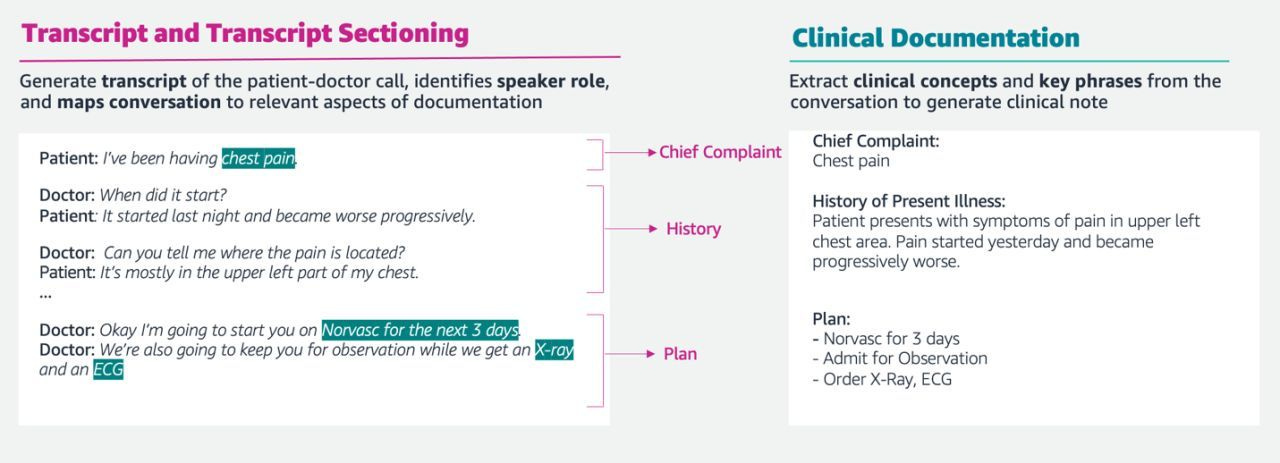🔊 AI in Clinical Documentation: Amazon's HealthScribe and Its Competitors
Physicians, on average, spend an estimated 4.5 hours a day on EHRs, a significant chunk of their valuable time that could be better spent on patient care. This has been a major contributor to physician burnout, a pressing issue in the medical community.
The landscape of clinical documentation is changing rapidly, with AI-powered solutions like Amazon's HealthScribe a recent contender. But how does it stack up against the competition? Let's dive in. 🌊🏥
HealthScribe, recently launched by Amazon Web Services (AWS), uses speech recognition and generative AI to automatically create preliminary clinical documentation from patient-clinician interactions. It extracts key details from these discussions, such as medical terms and medications, to create robust transcripts and summaries. It's currently being previewed for general medicine and orthopedics, with the potential for expansion based on client feedback.
HealthScribe is not Amazon's first venture into the medical transcription space. In 2019, AWS launched Transcribe Medical, a voice-to-text technology for clinical visits. Unlike HealthScribe, Transcribe Medical does not auto-populate relevant information into the EHR.
One of HealthScribe's main competitors is Microsoft's Dragon Ambient eXperience (DAX) Express (previously Nuance), which also uses AI to automate clinical note creation.
However, there are a few key differences:
1️⃣ Model Training: HealthScribe uses Amazon Bedrock for its generative AI capabilities, whereas DAX Express uses OpenAI’s GPT-4.
2️⃣ Market Availability: HealthScribe is immediately available to healthcare software providers, whereas DAX Express will only be available for private preview in the summer.
3️⃣ Data Use: AWS explicitly states that it does not use the data generated through the service to train its models, whereas the data use policies for DAX Express have not been explicitly stated.
However, there are other smaller newer startups such as DeepScribe that simply listens in on the conversation and filters out small talk, focusing only on medically relevant information and then summarizes it into a clinical document. It was launched in 2017 as an affordable solution, costing a fraction of what a human scribe or transcription service would and may give competition to giants like Microsoft and Amazon above. DeepScribe

Amazon HealthScribe:
AI-powered medical transcription service.
Automatically creates preliminary clinical documentation from patient-clinician conversations.
Uses speech recognition and generative AI to extract key details such as medical terms and medications.
Generates summaries from doctor-patient discussions that can be entered into an electronic health record (EHR) system.
Powered by Amazon Bedrock, it integrates generative AI capabilities into healthcare applications.
Initially focusing on two popular specialties: general medicine and orthopedics.
Enables responsible deployment of AI systems by citing the source of every line of generated text from within the original conversation transcript.
Built with security and privacy in mind, it gives customers control over where their data is stored, encrypts data in transit and at rest, and does not use inputs or outputs generated through the service to train its models.
Part of a broad set of purpose-built health services that help thousands of healthcare and life sciences customers reinvent how they collaborate, make data-driven clinical and operational decisions, advance precision medicine, and decrease the cost of care.
Has been previewed by 3M Health Information Systems, Babylon Health, and ScribeEMR among customers and partners.
Nuance DAX:
Uses AI to automatically document patient encounters accurately and efficiently at the point of care.
Enhances the quality of care and patient experience, increases provider efficiency and satisfaction, and improves financial outcomes.
Reduces administrative burdens and allows physicians to focus more on patient care.
Captures a multi-party conversation ambiently, allowing providers to connect with patients without having to use explicit voice commands.
Converts encounter conversations into comprehensive clinical notes tailored to each specialty that adhere to documentation standards.
Integrates with electronic healthcare record systems to pull out patient context, deliver the final note, and enable care teams to complete a growing list of tasks in real time with virtual assistants.
Scales across healthcare organizations and can be used for telehealth and office settings in ambulatory specialties, urgent care, and primary care.
Has received accolades such as ranking #1 for improving clinician experience in the 2022 KLAS Emerging Solutions Top 20 Report and being awarded Silver for Healthcare Technology in the 2022 Stevie Awards.
DeepScribe:
AI-powered medical transcription service.
Creates comprehensive clinical documentation from natural conversation.
Reduces the burden of note-taking, allowing physicians to focus more on patient care.
Integrates seamlessly with EHRs.
Offers a mobile app for easy access and use.
Provides a 24/7 available AI assistant, which can be a game-changer for healthcare professionals working in different time zones or during odd hours.
Offers a free trial to test the service.
The advent of AI in healthcare is not just about technology; it's about giving back time to healthcare professionals, improving patient care, and enhancing operational efficiency. The competition is set to push the boundaries of AI innovation in healthcare, ultimately leading to better patient outcomes. As physician entrepreneurs and healthcare founders, it's crucial to stay informed about these developments and consider how they can enhance our practices and patient care.






